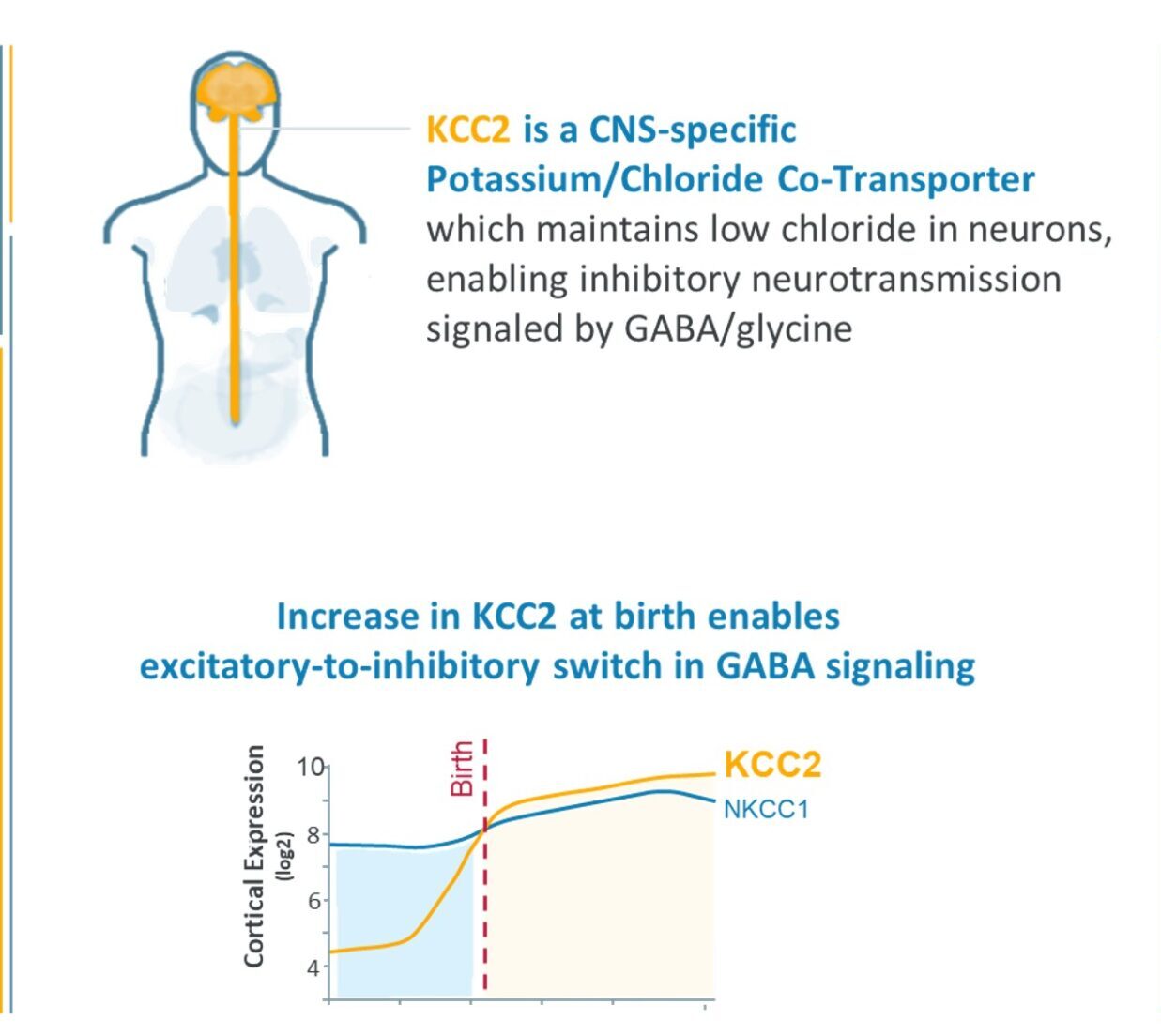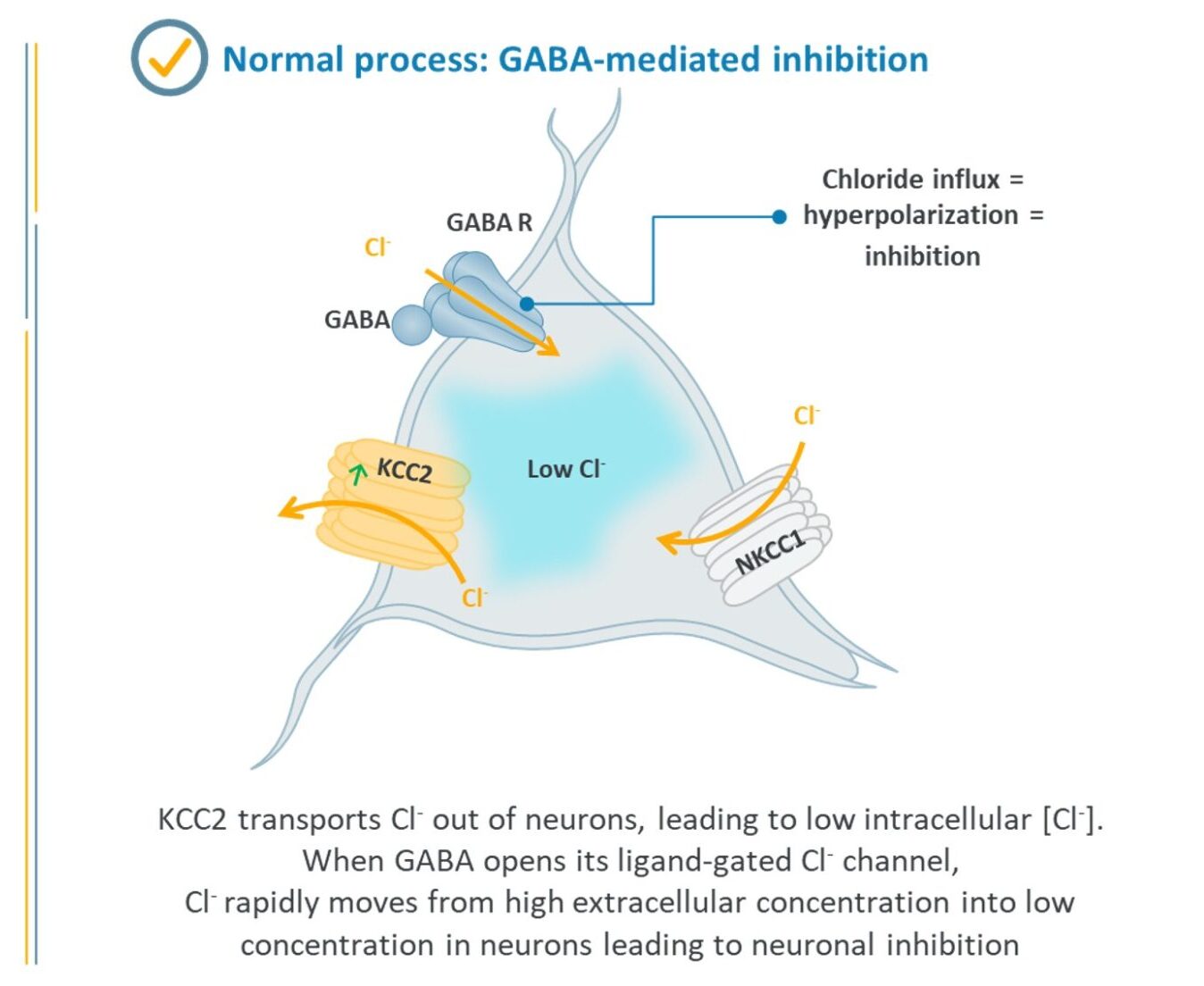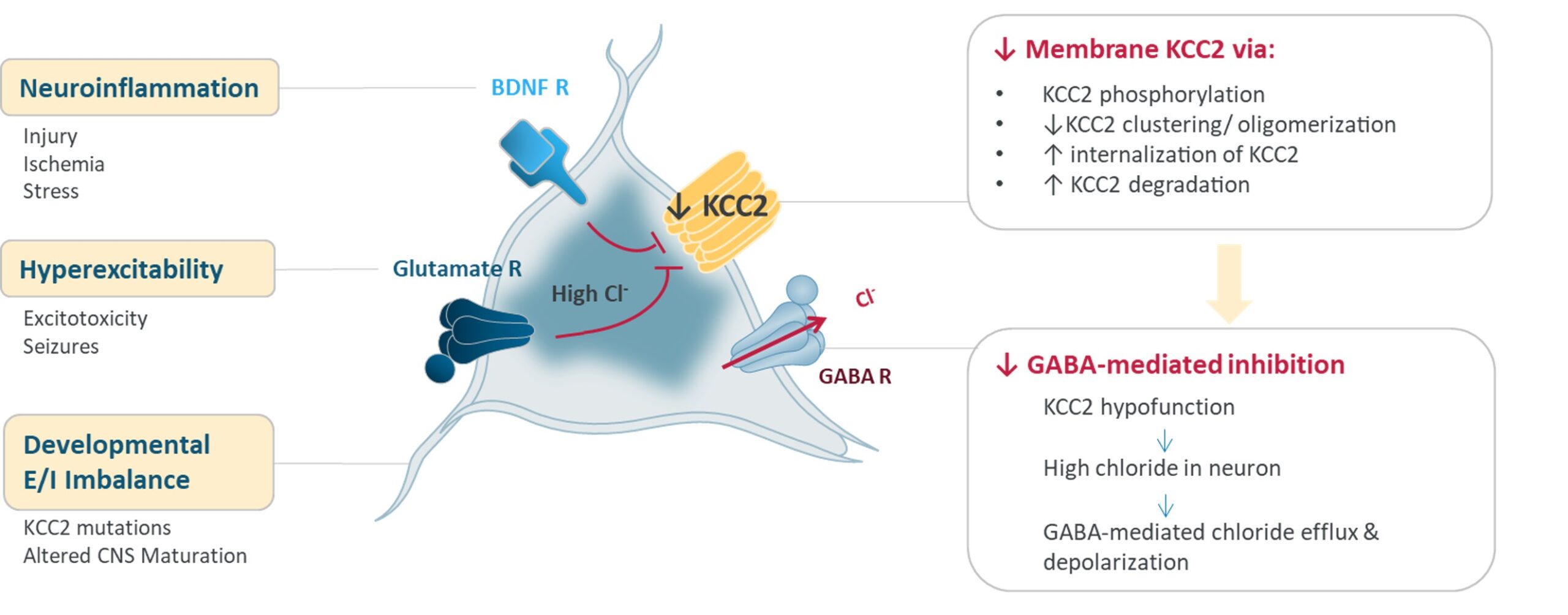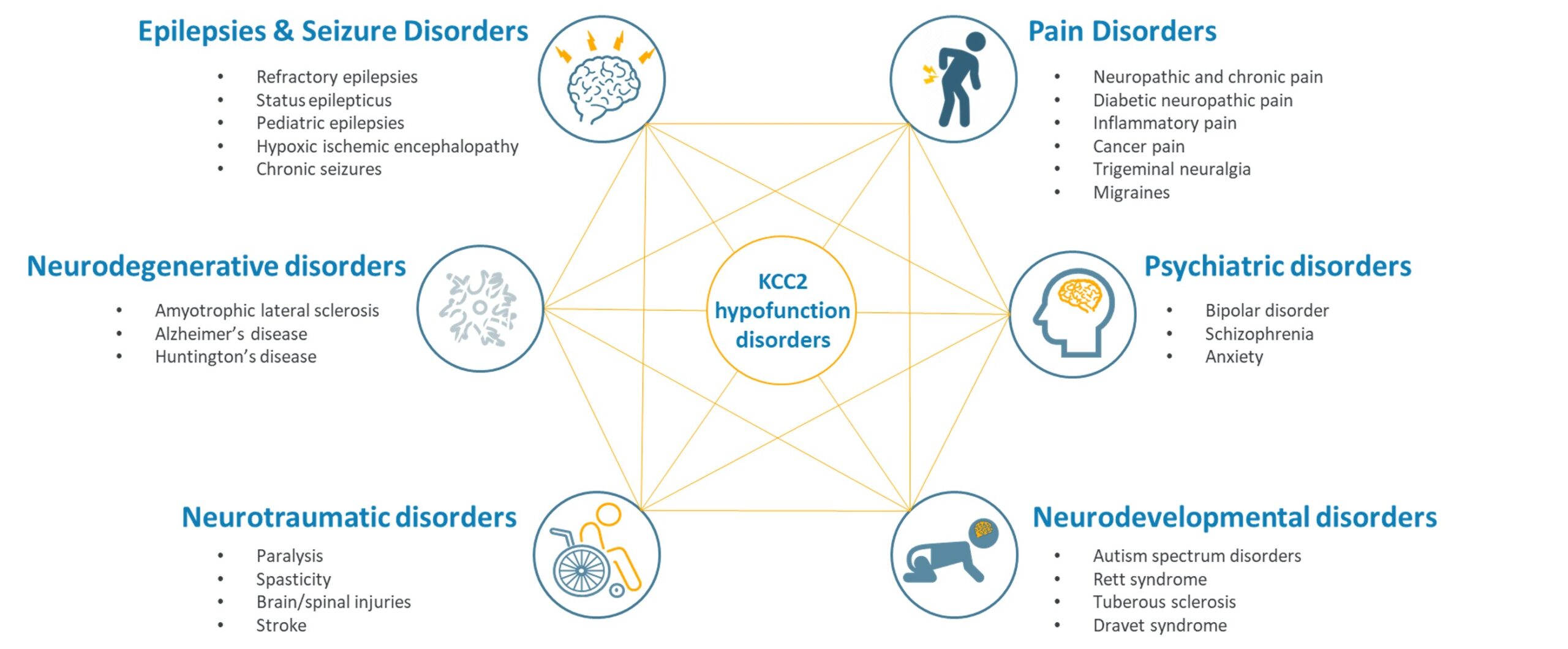Our Science
We are developing first- and best-in-class oral therapeutics for KCC2, a currently undrugged but highly validated CNS-specific target that can restore balance to disinhibited brain circuits to treat neurological disorders without disabling side effects.
We are developing first- and best-in-class oral therapeutics for KCC2, a currently undrugged but highly validated CNS-specific target that can restore balance to disinhibited brain circuits to treat neurological disorders without disabling side effects.
Target Biology: KCC2
Gamma-aminobutyric acid (GABA) is an amino acid that serves as the main inhibitory neurotransmitter for the central nervous system (CNS). It reduces neuronal excitability by inhibiting the activity of signal-receiving neurons. KCC2 is the chief CNS-specific chloride transporter, essential for the inhibitory response of neurons to GABA throughout life. KCC2 transports chloride out of CNS neurons to ensure low chloride concentrations within these neurons, enabling inhibition upon GABA receptor activation. Disruption of KCC2-dependent chloride homeostasis impairs neuronal inhibition.


ENABLING PHYSIOLOGICAL INHIBITION WITHIN BRAIN CIRCUITS
In neurological disorders downstream of acquired and genetic factors, multiple pathologies converge to impair KCC2-dependent inhibition in the CNS. When KCC2 hypofunction occurs, affected neurons are disinhibited due to impaired inhibitory responses to GABA. This causes neuronal hyperexcitability, dysfunction within neuron circuits and disrupted neurological functions, such as pain, seizures, paralysis, spasticity, behavioral abnormalities, and intellectual disabilities. KCC2 is a genetically validated target for epilepsy and autism spectrum disorder, and mutations in human KCC2 have also been linked to psychiatric conditions.

PIPELINE-IN-A-PILL: KCC2-HYPOFUNCTION CNS DISINHIBITION DISORDERS
Treatments that potentiate KCC2 restore E/I balance and rescue functions in several neurological disorder models. However, no KCC2 drugs exist on the market. At Axonis, we are advancing a first- and best-in-class oral KCC2-potentiating small molecule into the clinic. Fine-tuning chloride homeostasis in CNS neurons will enable them to respond to physiological GABA-mediated inhibition, without a need for global depressive effects on the brain (e.g., benzodiazepines). Therefore, AXN-027 offers a novel therapeutic approach for refractory epilepsy and pain, with improved tolerability and without debilitating side effects. For the lead program in epilepsies, KCC2 is an extremely well validated, novel epilepsy target with data in human tissues, human EEG, and human and mouse genetics. Moreover, several groups have characterized the mechanism of KCC2 hypofunction causing spinal disinhibition underlying pathological CNS sensitization in chronic neuropathic pain. Finally, KCC2 is essential for CNS maturation, and is the mediator of critical switch of GABA from excitatory-to-inhibitory after birth. As a result, KCC2 hypofunction has been reported to contribute to seizures, intellectual disability and behavioral abnormalities in several neurodevelopmental disorders, where KCC2 potentiation may be disease-modifying.

